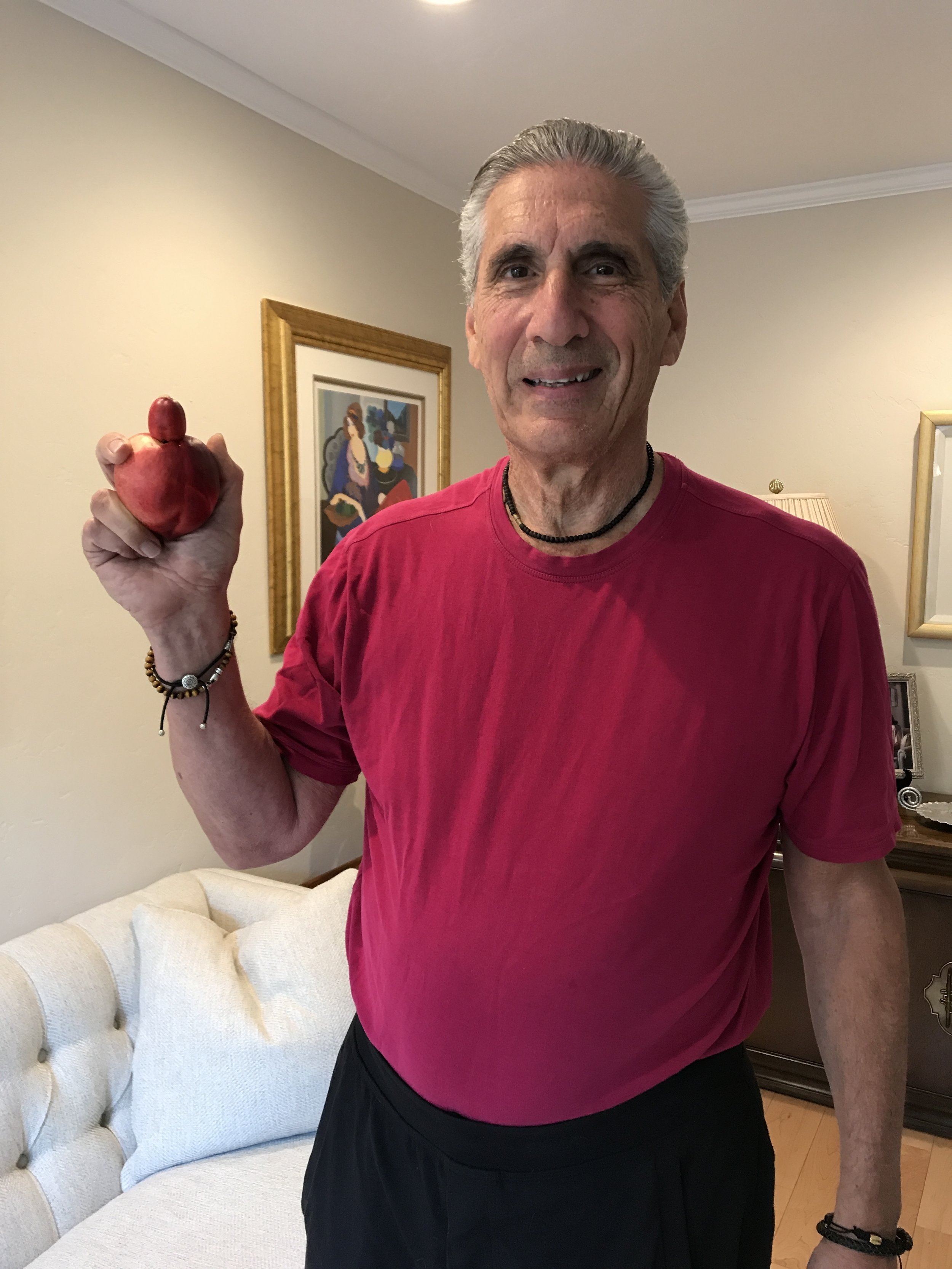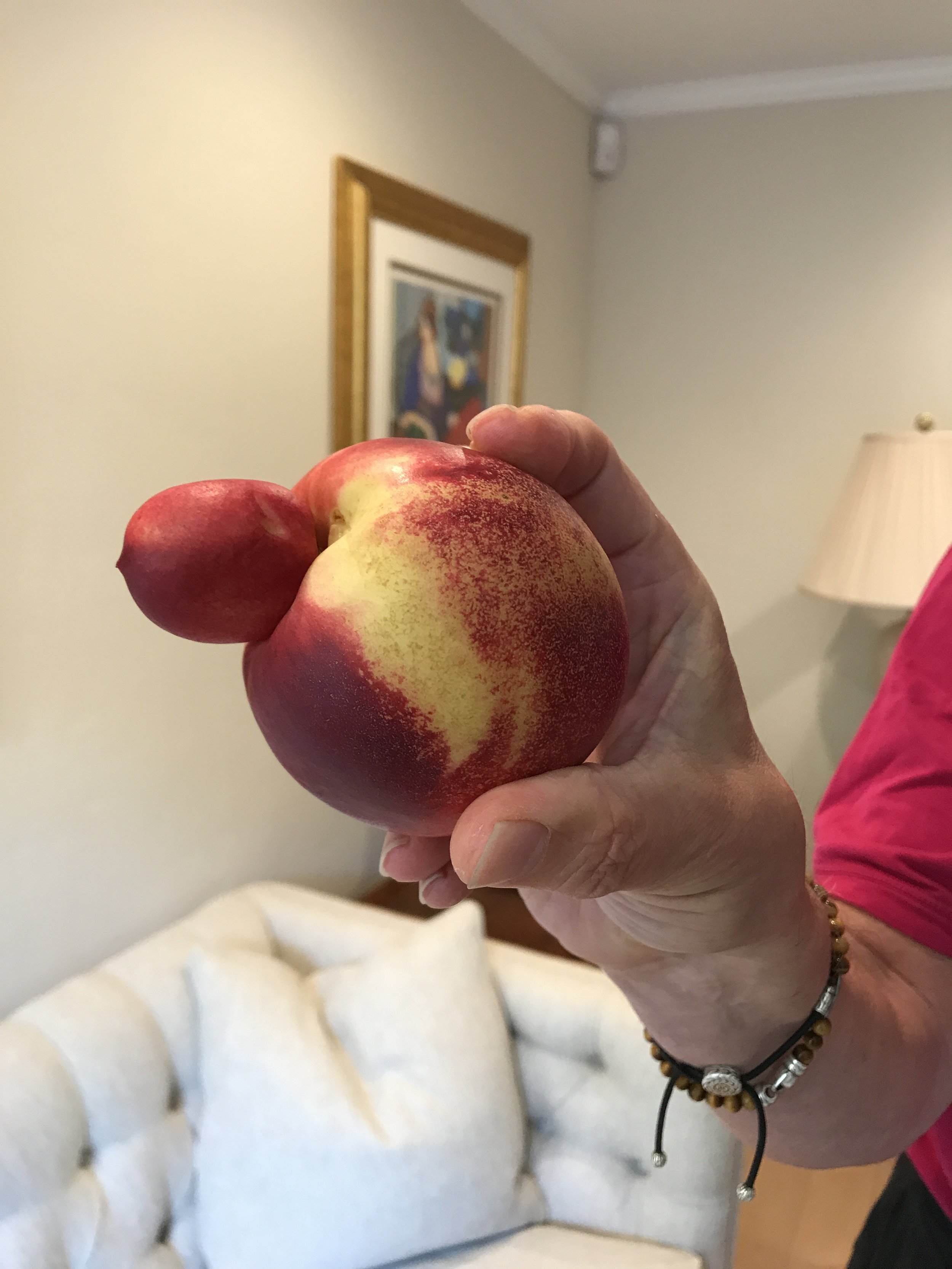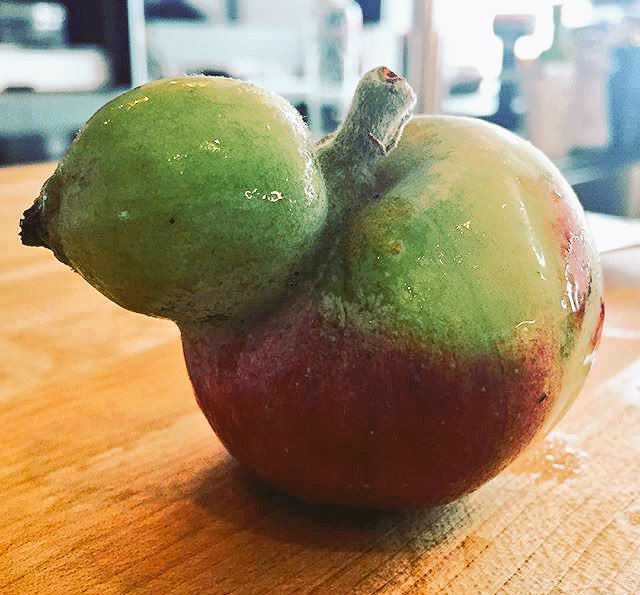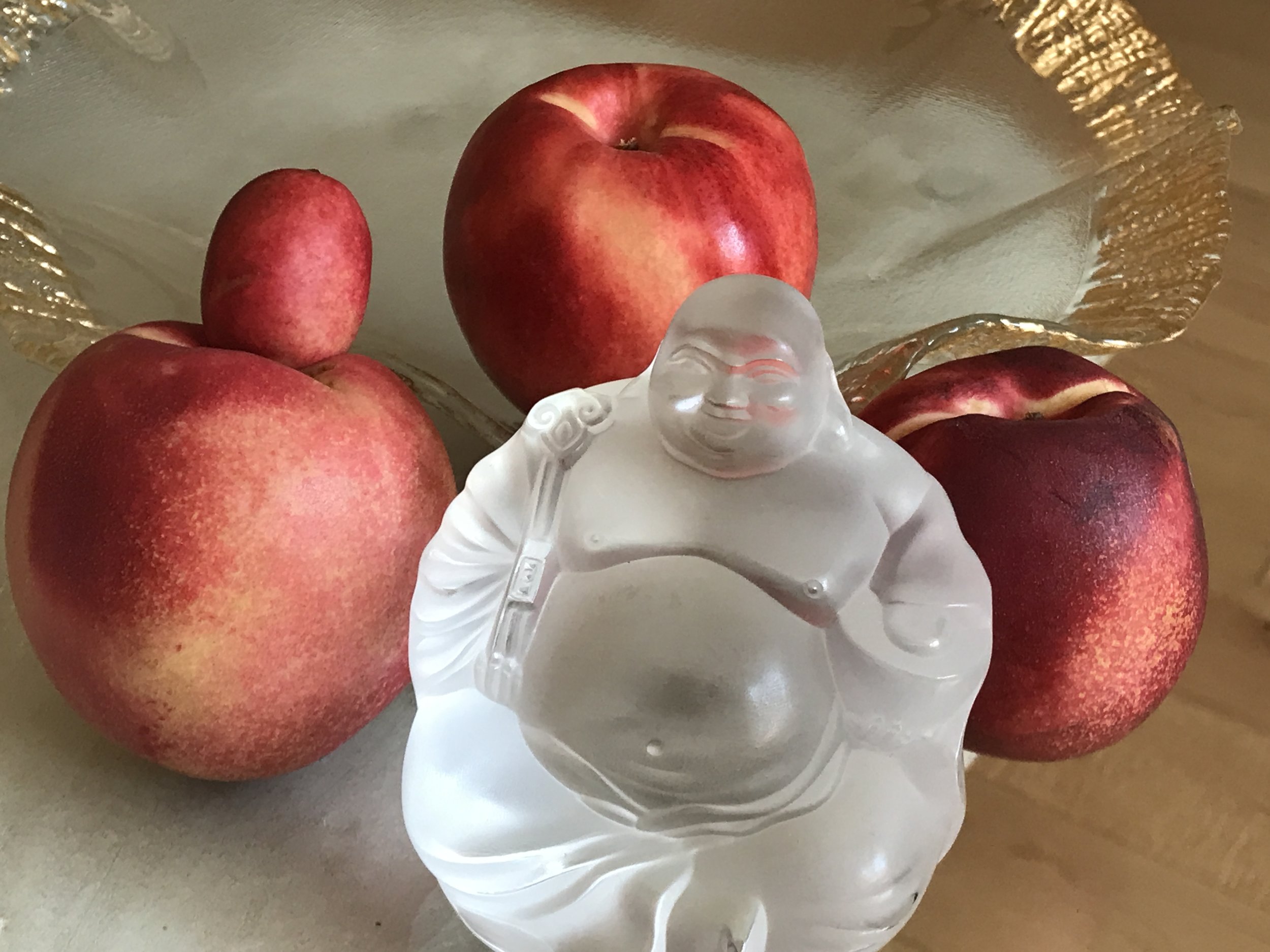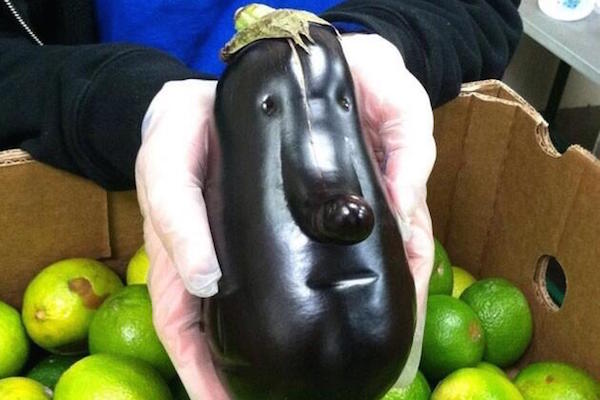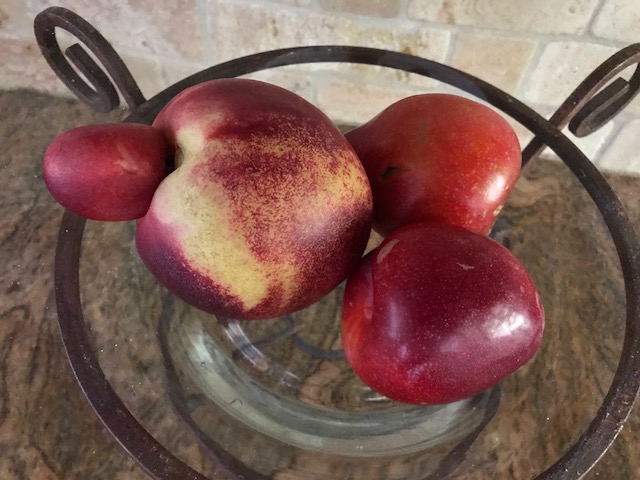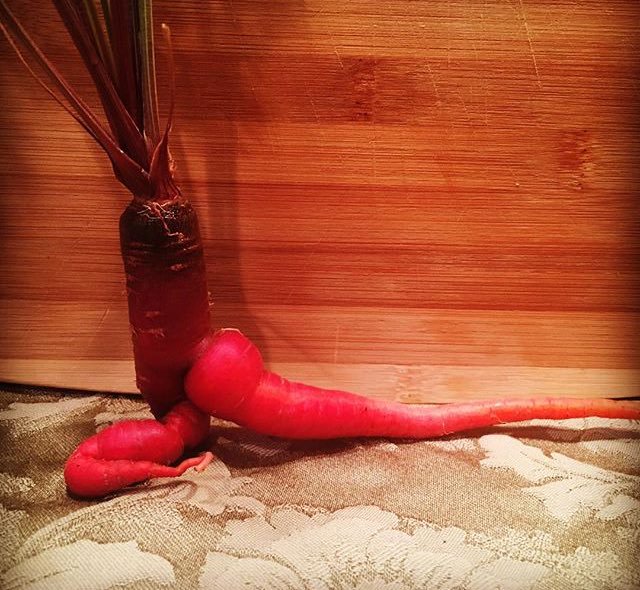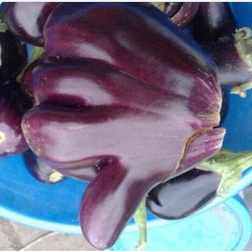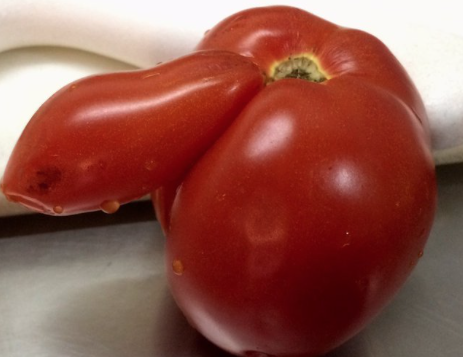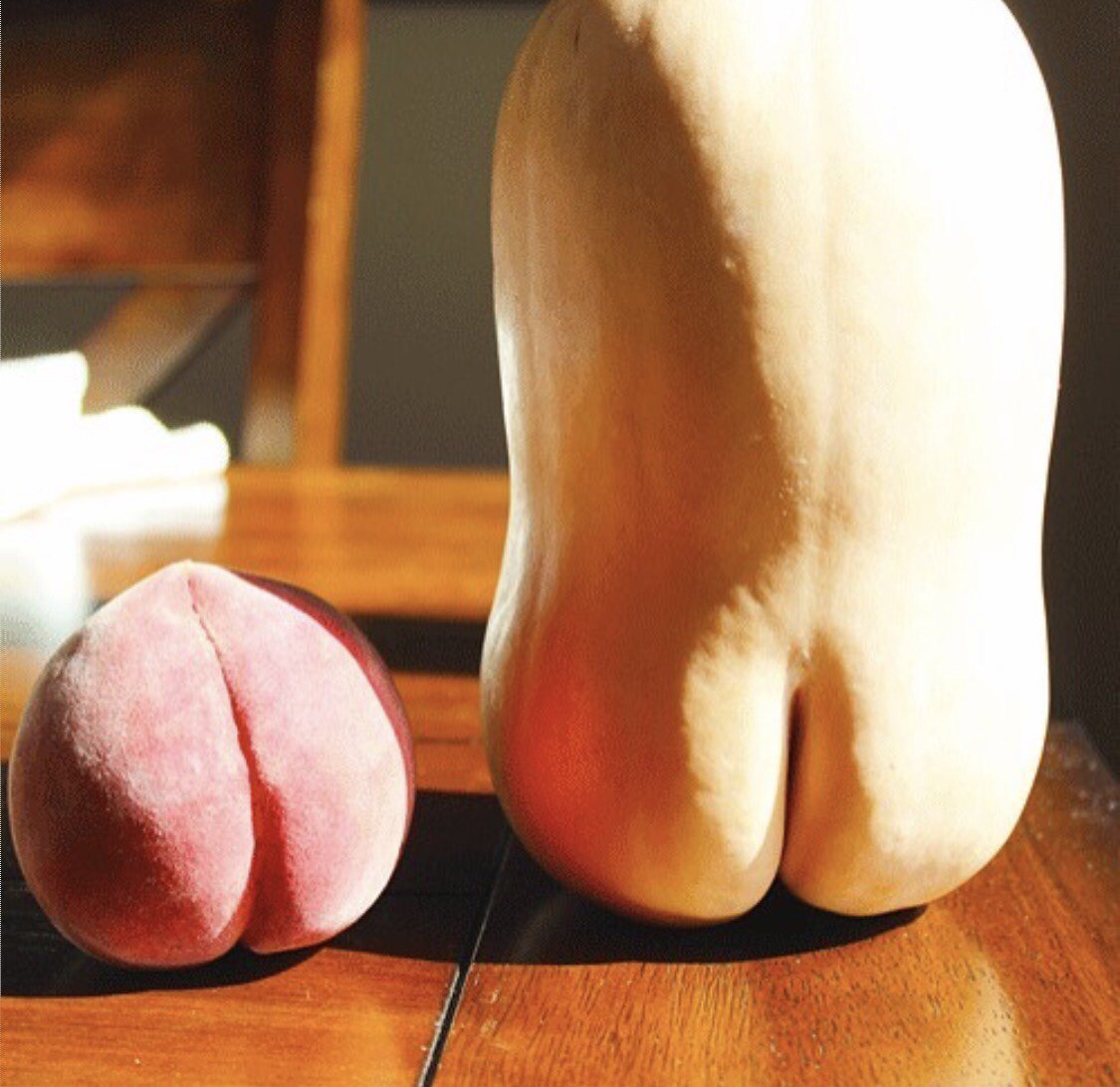Cosmetically Challenged Fruit and Veggies Get No Respect & Why They Should
“Ugly is the new beautiful when it comes to produce.”—Mary Gerush
It all began with a trip to the local Farmer’s Market. One of our favorite fruits are white nectarines. When we approached our favorite produce stall, I began hand picking the best, unbruised fruit I could find when I came upon one that looked “cosmetically challenged.” It was odd, misshapen, and it made me smile. It looked like it had a big nose attached to it. My curiosity got the best of me. I bought it anyway. When we got home, It got me thinking about how often the mind discriminates by how things look. People tend to look for attractive partners with whom to mate, nice clothes to wear, we want flawless skin, perfect tans, desire fancy cars within our budget, cute pets to bring home. So is it really any wonder why we would expect good-looking food to be tastier? In fact according to Debra Zellner, a professor of psychology at Montclair State University in New Jersey, “Several studies have shown that how foods are presented can influence our liking them.” Think about the “oohs and ahs,” we express when the waiter serves us an entree made by a chef that looks like a work of art. They are almost too pretty eat.
In 2014, Zellner worked with the Culinary Institute of America to serve two meals to participants that were prepared by chefs. They were the same in every way except one was more visually pleasing to the human eye. The result of the study confirmed that people enjoyed their meal better when it was plated more attractively. Scientists believe the brain uses aesthetic processing to evaluate whether the foodstuff we are looking at, is good or bad for us. But, the question that begs to be answered, are strange looking fruits and vegetables really bad for y
Let’s begin with what causes fruits and vegetable to become mishappen or deformed in the first place.
According to Marvin Pitts, a professor of horticulture at Cornell University there are three major causes:
Inadequate pollination, frost damage and insects feeding on parts of these food sources that causes them to develop in a asymmetrical shape. But, none of these causes would make them harmful to human beings. The belief is that once people are reminded that fruits and vegetables don’t have to be symmetrical to be safe and delicious to eat, perceptions are likely to change. Plus, in the age of social and environmental responsibility, food shaming based on how an item looks may fall by the wayside.
Sadly, even though nutritious food is available, six billion pounds of so called ugly fruits and veggies wind up in a landfill because it doesn’t meet cosmetic standards, while millions of children who go hungry every day. To combat this dilemma, Bay Area start up “imperfect" is selling crooked carrots and malformed tomatoes and potatoes directly to consumers by forming strategic alliances with farms and packing houses to take their unwanted produce and sell them at 30 to 50 per cent less than supermarkets. It is a win-win situation that benefits the farmer, consumer, while saving a great amount of wasted food and water.
The European Commission joined in declaring 2014 was “the year against food waste.” Their goal is to reduce food waste in the European Union by 30% by 2025.
Imperfect Founders Ben Chesler and Ben Simon are filling in some of the gaps in the food waste chain. They founded Food Recovery Network to connect cafeterias with local food banks so dining hall leftovers would go to groups in need. Ron Clark, the food sourcing and logistics manager for the California Association of Food Banks set up a program called Farm to Family, where he sources out one million pounds of ugly fruits and veggies directly from farms to families in need.
Imperfect’s motto is,“all fruits and veggies deserve to be loved.” As in life itself, diversity and imperfections are not flaws but traits to be celebrated. When you break down the word Imperfect, it actually spells, “I’m Perfect,” because everyone and every thing is perfect in their own imperfect ways. And finally a note to parents of young children, your kids are more likely fruits and vegetable if they looked like this.
Postscript: Yes, I did eat my cosmetically challenged nectarine from the Farmer’s Market (except the nose),🙂 and boy was it tasty and sweet.
Eggplant Head Image credit: Gareth P. Lewis.
Apple Duckie image credit: @gourmet.jpg
Carrot Yoga image credit: @debbiegleeson
Peachy Love image credit: @UglyFruitAndBeg.jpg
